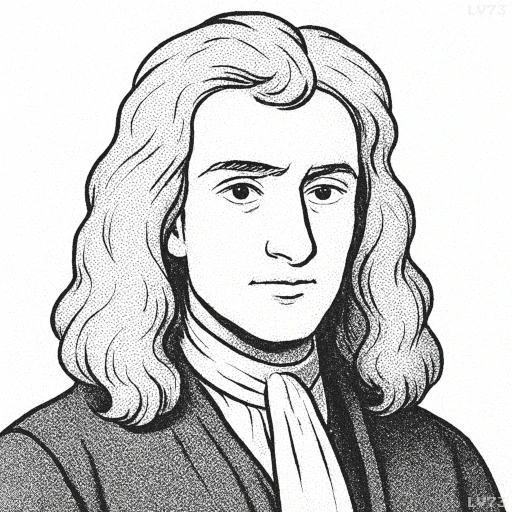“I have explained the phenomena of the heavens and of our sea by the force of gravity, but I have not yet assigned a cause to gravity.”

- January 4, 1643 – March 31, 1727
- Born in England (UK)
- Natural philosopher, mathematician, physicist, astronomer, theologian
table of contents
Quote
“I have explained the phenomena of the heavens and of our sea by the force of gravity, but I have not yet assigned a cause to gravity.”
Explanation
In this quote, Isaac Newton acknowledges that while he has successfully used the concept of gravity to explain the motions of celestial bodies (like planets, moons, and comets) and phenomena on Earth (such as tides and falling objects), he has not yet provided an explanation for the origin or cause of gravity itself. Newton’s law of universal gravitation describes the gravitational force as a force of attraction that acts between two masses, but he admits that the mechanism by which gravity operates remains unknown to him. He focuses on describing the effects of gravity rather than explaining its deeper cause, a distinction that highlights his empirical approach to science—focusing on observable phenomena and mathematical relationships rather than speculative causes.
This statement reflects the broader theme in Newton’s work: he was a master of mathematical description and predictive models, but he did not always venture into explaining the underlying causes behind the forces he described. While he formulated the laws of motion and universal gravitation, providing a clear framework for understanding how objects moved under the influence of gravity, the nature of gravity—whether it was transmitted through a medium, or how two distant bodies could exert force on each other instantaneously—remained an open question. Newton himself famously resisted attempts to speculate too much about the cause of gravity, instead focusing on the mathematical law and its ability to explain observations.
In modern physics, gravity remains a key area of exploration. While Newton’s law of gravity is still widely used to describe gravitational interactions, the true cause of gravity was only more fully understood with Einstein’s theory of general relativity, which described gravity not as a force transmitted through space but as the curvature of space-time caused by the presence of mass. Yet, even in general relativity, the nature of gravity remains a topic of interest in the quest for a unified theory of physics, especially when trying to reconcile it with the quantum mechanics that govern the subatomic world.
Newton’s admission that he had not yet assigned a cause to gravity reflects the limitations of his time and shows his commitment to a scientific method that prioritized observable facts over speculative explanations. It also highlights the ongoing nature of scientific inquiry, where even after a great discovery, there are always deeper questions to be explored.
Would you like to share your impressions or related stories about this quote in the comments section?
